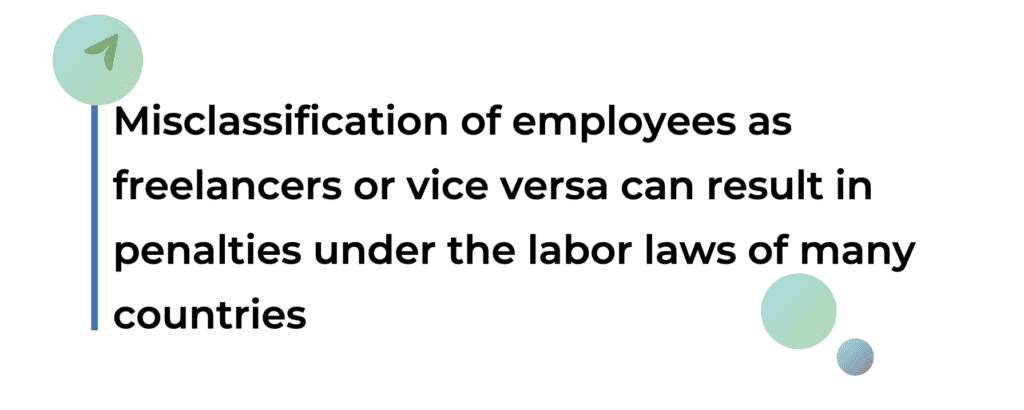A startup’s guide to hiring overseas remote workers compliantly.
Say, your young start-up is unable to afford the salary requirements of tech developers of your country. You got to know there are highly skilled tech developers in other parts of the world who you can afford and onboard. So, now you need to manage their immigration and relocation. But there is a way around that too. We are in the second decade of the 21st century – tech developers from across borders can work for your start-up remotely!
Read on to know how to navigate borders to hire the most suitable people for your budding start-up-
1. Searching for the diamond a.k.a recruiting the right candidate
While hiring overseas candidates, the background check should be microscopic, the kind Sherlock Holmes would do.
You probably have no idea about the best educational institutions in that country.
So, you may want to take the help of a recruiting agency to thoroughly scrutinize the candidate’s skills/ qualifications/ experience. Make sure that the agency is skilled and experienced enough to gauge the candidate’s skills and knowledge. You may also choose to DIY – using job portals such as LinkedIn, Careerjet, Jobvine, etc, etc.
2. Deciding your relationship with the chosen candidate
Would you want the candidate to be an employee or an independent consultant/ freelancer or gig worker?
The freelancing space is still in the making. Different countries have different laws around it. What classifies as freelancing in one country may classify as employment in another country.

Hiring employees is usually accompanied with tax, insurance, and social security compliances. While hiring freelancers may be easier, you may prefer to hire employees for long-term projects who work dedicatedly with you under your direction and supervision.
In February 2021, a group of Uber drivers challenged the way Uber classified them as self-employed in Britain’s Supreme Court. The Court ruled in the drivers’ favor, entitling them to rights such as the minimum wage and holiday pay.
Courts across the UK and Europe are now ruling in favor of employment rights for gig workers, there are some outliers though.
The EU is proposing to pass a law that attempts to define the line between a self-employed platform worker and a platform worker that deserves the same rights as an employee. That line is actually a list of five criteria, which focuses on how much control a platform has over a worker—whether the platform monitors their performance, whether the worker can choose their hours or work for other companies, etc. If a platform meets two or more criteria, its self-employed workers should be reclassified. The onus to prove that there is no employment relationship between the platform and the workers rests on the platform.
3. With overseas hiring comes overseas laws
You want to be compliant with overseas employment and labor laws and adhere to them just as well as domestic laws. This implies considering things like-
- Prevalent salary range for the employee’s role in the overseas country
- Mandatory leaves that the employee is eligible for – paid leave, paternal leave, sick leave, national holidays, etc
Belgium has recently approved a 4-day work week that also gives the employees the right to ignore their bosses after work! As of September 2022, 6-months pilot programs in over 180 companies are underway in multiple countries across the world to check the feasibility of working 4 days a week.
- Recruitment and employment policies that align not just with your organization’s internal framework but with the laws of the overseas country as well
In countries such as Portugal, employers are now required to pay for reasonable remote work-related costs like, electricity and internet. Taiwan also requires employers to provide education on mental and physical health to ensure the well-being of remote employees. In Colombia, employers should perform medical examinations for their remote employees when they are hired and on a periodic basis.
4. There are only 2 things certain in life – taxes and taxes
Cross-border hiring may expose your start-up to taxation in that other country by virtue of it having a Permanent Establishment there. To explain in simple words, having a Permanent Establishment in a country implies that your organization has created a presence so strong in a foreign country that the country wants to collect income tax from it.
You may also need to adhere to employer-related tax and social security compliances in the overseas country. Consider hiring your cross-border remote employee through a third-party service provider who acts as the legal employer in their home country. These service providers are often called Employers of Records (‘EOR‘). Cross-border hiring through EOR reduces overseas tax and compliance exposure. To learn more about the concept of Employer of Records, read our comprehensive ‘EOR’ handbook.
We are currently supporting a US based start-up to work compliantly with their remote digital marketing team in India. Check out how we supported an Indian company hire team in West Africa without actually setting-up an entity there.
Further reading: Comprehensive guide for start-ups employing overseas workers
5. Compensation – Paying remote overseas workers
Independent contractors/freelancers can be paid on a time basis or project basis. They may ask for an advance payment, or you may decide to pay them on the completion of their project. In any case, ensure that they have raised an invoice for the work done. This practice can help rule out employer-employee relationship (remember employees don’t raise invoices).
In either case (whether you are hiring an employee or a freelancer), you need to be mindful of the currency you’ll be paying in. Consider the cost of living index of the overseas worker or prevalent payscale in the host country, industry rates, and expected benefits before finalizing the compensation. A well-drafted contract is non-negotiable.
To attract and retain talent, compensation structuring should be top-notch. Employer-sponsored health insurance, stock options, are some ways that can be explored to incentivise performance.
6. Dealing with cyber security risks
With people working far away from offices, they are more likely to use personal gadgets, insecure wifi connections, outdated OS and antiviruses, etc. The risk is serious and the processes to counter those risks should be robust. E.g., training your staff to avoid falling victim to phishing attacks, ensuring that they use a VPN, regularly storing data safely in the cloud, are some simple ways you keep cyber security risks at bay.
Having overseas workers working remotely implies following multiple overseas laws and compliances. Not adhering to these laws can spell serious trouble. It is advisable to consult a third-party service provider or use a mobility management tool that keeps track of the laws and regulations pertaining to different countries.
Grow and expand. But keep an eye on the laws and compliances.




